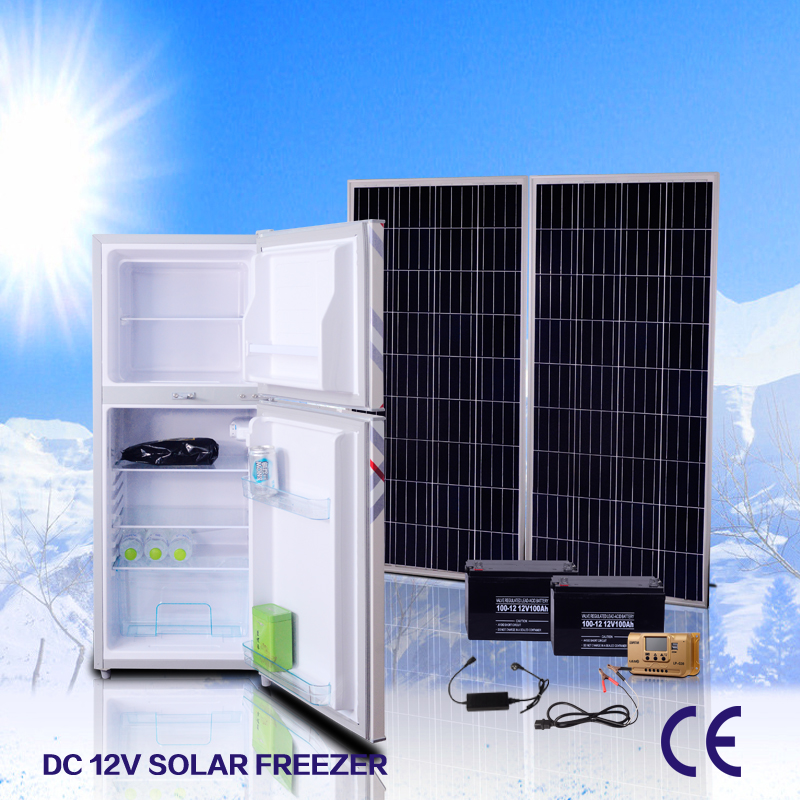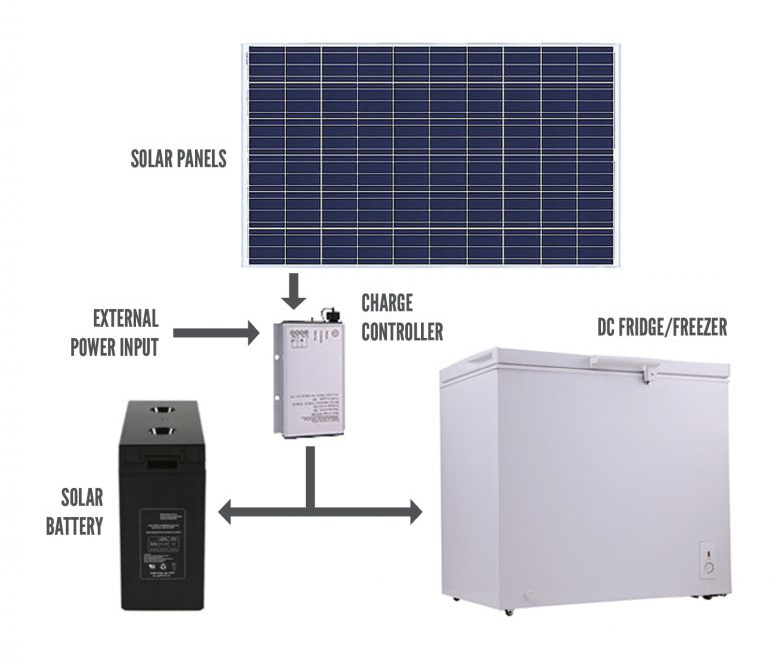A solar refrigerator is an perfect option for off-grid cooling.
A solar refrigerator is an perfect option for off-grid cooling.
Blog Article
Unlocking the Prospective: Exactly How Solar Refrigerator Can Change Your Energy Consumption
The development of solar fridges provides an engaging chance to improve our method to power usage. By properly using eco-friendly solar energy, these systems assure not only to lower dependence on standard energy sources yet also to improve food preservation and protection, particularly in underserved regions.
Just How Solar Refrigerators Work
Solar refrigerators operate by harnessing solar energy to power their cooling systems, effectively using eco-friendly sources to maintain reduced temperature levels. These systems generally include photovoltaic (PV) panels that convert sunshine right into electricity. This electrical energy is after that made use of to run the compressor, fan, and various other components vital for refrigeration.
The key mechanism in a solar refrigerator is the vapor-compression cycle, similar to traditional refrigerators (solar refrigerator). The compressor compresses refrigerant gas, increasing its temperature level and stress. This gas after that takes a trip through a condenser, where it releases heat and condenses into a liquid state. The liquid refrigerant flows right into a development shutoff, where it swiftly increases, cooling down before entering the evaporator. In the evaporator, the refrigerant takes in warm from the inside of the fridge, therefore reducing its temperature level.
Solar refrigerators may also incorporate battery storage space systems, permitting them to run throughout non-sunny hours or in cloudy conditions. This ensures a continuous cooling effect, making them suitable for numerous applications, specifically in remote locations doing not have accessibility to trustworthy power. By incorporating solar innovation, these refrigerators add to energy performance and sustainability in food storage and conservation.
Trick Benefits of Solar Refrigeration
The combination of solar modern technology into refrigeration systems offers many advantages that prolong past simple power financial savings. By utilizing eco-friendly solar energy, these systems lessen reliance on fossil fuels, adding to a more lasting atmosphere.

Moreover, the usage of solar power can cause energy self-reliance, enabling users to produce their very own power and reduce vulnerability to fluctuating power rates. Generally, the adoption of solar refrigeration presents a complex option that not only addresses power consumption but likewise advertises environmental sustainability and enhances food preservation capabilities in underserved communities.
Power Cost Savings and Effectiveness
With the climbing expenses of power and raising recognition of ecological issues, power financial savings and effectiveness have come to be essential factors check this to consider in refrigeration technology (solar refrigerator). Solar fridges utilize renewable resource resources, considerably lowering reliance on conventional electrical power grids. By harnessing solar energy, these systems reduce power usage, making them a financially viable choice for both property and commercial applications
The style of solar fridges integrates innovative insulation materials and energy-efficient compressors, which make sure optimal efficiency while using very little power. Numerous solar fridge models additionally feature programmable settings and clever technology that enable customers to monitor and take care of energy use effectively. This intelligent style brings about decreased electricity expenses and reduced functional costs over time.
Additionally, solar refrigerators are geared up with batteries that save excess power generated during warm days, making it possible for continual operation also throughout durations of low sunlight. This ability improves their effectiveness, making certain that food and disposable products are continually maintained at safe temperatures.
Environmental Impact and Sustainability
Using renewable energy not only enhances energy savings but also substantially adds to ecological sustainability. solar refrigerator. Solar fridges run on tidy, sustainable power resources, lowering dependence on fossil gas that add to greenhouse gas discharges. This shift in energy consumption reduces climate modification effects and fosters a healthier earth

In addition, solar refrigerators are especially valuable in remote locations where electrical power accessibility is limited or non-existent. By supplying a viable refrigeration option without the need for substantial infrastructure, they advertise sustainable advancement in underserved areas. This accessibility not only boosts food safety but likewise lowers food spoilage, thus lowering waste.
Picking the Right Solar Refrigerator
Choosing the perfect solar fridge calls for mindful consideration of various elements to make sure ideal performance and efficiency. First, evaluate the energy needs based on your usage patterns. Determine the overall power level called for to maintain your items cool down, which helps in choosing a system with an ideal photovoltaic panel dimension to fulfill these needs.

Another essential aspect is the kind of solar refrigerator-- compressor or absorption. Compressor designs are usually much more reliable and better fit for settings with varying temperature levels, while absorption refrigerators may be better for off-grid applications due to their simplicity.
Last but not least, ensure the system has dependable solar elements, consisting of panels, batteries, and a charge controller, to guarantee long-lasting capability. By carefully thinking about these factors, you can choose a solar fridge that straightens with your energy objectives and adds to sustainable living.
Verdict
In recap, solar refrigerators stand for a substantial innovation in power usage, providing a sustainable alternative to typical refrigeration approaches. By using solar power, these systems not just decrease reliance on fossil gas however likewise enhance food safety and security and reduce ecological effect.
Report this page